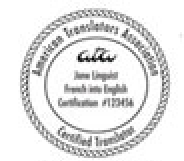Are you considering becoming a full-time freelance translator? Good for you! But before attending to the business side of the matter, you need to be absolutely sure that you know what you’re doing. Unfortunately, simply knowing a second language does not mean you can translate. Learning the profession of translation requires a lot of dedication and practice.
Although knowing a second language and translating are by no means the same thing, the former is an essential condition to master the latter. A high-school level of language command is definitely not enough. You need to be well versed in the literature, cinema and culture of the language. More than that, you should be able to use it actively and as easily as your mother tongue.
Find the best learning aids
Nobody can learn the complete vocabulary of a language. Even native speakers don’t know every single word of their mother tongue, especially when it comes to technical terms. What’s more, you may encounter difficulties when translating idiomatic expressions. That’s why you need to know what tools are available to you; a simple Google search is often insufficient.
Fortunately, there are other ways. One of them is to ask your fellow translators for advice on translation forums, such as proz.com or translatorscafe.com. You also can easily lay your hands on tools to create your own bilingual corpora. One example of such programs is BootCaT. If you translate in a specialty niche (like medical or technical), a good bilingual dictionary of the terminology is an absolute minimum need. One example of a dictionary publisher is German company Langenscheidt.
Practice makes perfect
When you’ve found out what tools are available to you, it’s time to get down to translating. Practice is the key to success in anything. The good news is that there are ways you can do so while earning money at the same time. One of the best online platforms for non-professional translators is gengo.com. It pays at a rate of 3 cents per word at standard level, which may not seem much. However, it’s not too bad if you take into account that you don’t need any formal qualifications to start working there; you simply have to pass a translation test. What’s great about Gengo is that, from time to time, it conducts quality checks; you get free feedback on your performance from senior translators, which is always a learning opportunity.
Taking it up a notch
If you want to take your skills to a higher level, you should consider working with texts that have already been translated. You can then compare your translation with the official one. This is a great exercise to see what mistakes you are making, especially if you have a tendency to translate too literally. The realization that your translations aren’t perfect may be painful, but it is necessary if you want to make progress. There are a number of websites that provide translation tests, such as the EU Careers website.
Dressing up your CV

Everyone knows that you can’t get a job without having previous experience. So how does a newbie get their first job? This is conundrum that faces many young people embarking in a new career. The good news is that it is easy to for new translators to get work. Just sign up to some of lower end freelancer marketplace websites like Upwork and Fiverr and offer your services online. Never mind if you don’t make much money at the start-the main thing is to gain experience which you can list on your resume. As you gain more experience, raise your prices and target higher end clients.
Getting Certified

Once you have honed your skills as a translator to a high level, you can try to attain certification from an accredited translator guild. At the lower end, some translation companies (like One Hour Translation) provide their own certification. Proz.com also provides translation tests and its own internal certification program. At the higher end, the American Translator Association and the United Nations offer translation certification. Being certified at this level puts you at the highest rank among your professional peers and will pretty much guarantee your future as a freelance translator.
Knowing your mandate as a professional translator
The question all translators have to ask themselves is: ‘How can I get the message across?’ A good translation should have the same impact on the reader as the original text. (from the European Commission website, Juvenes Translatores)
The job of a translator is to take a text which is written in one language and write it in another language. Simple enough. But is it? On one hand, the translator has limited creative freedom. After all, the translator needs to stay true to the original text. On the other hand, one of the most common complaints that translators and translation agencies get is that “translation is too literal.” A good translator knows her/his mandate, but also knows that the translated text needs to read fluently in the target language. Word choices should be considered carefully when there a number of words that may fit. Changing the sequence of a sentence to improve readability should always be considered.
Learning to deal with feedback
Unlike in some other professions, the best feedback a translator will receive is silence (and a paycheck). A good translation is seldom rewarded by praise or adulation. But if the translator does a poor job, the feedback will rain blows on your head. Become a perfectionist and strive to get the paycheck each time with no comments or complaints.
The most important thing to remember is that translation is a skill you need to practice. Therefore, always look for ways to translate more and more. It is also valuable to reflect on your work. Is it a good translation? If not, what could be improved? If it’s possible, try to get feedback on your performance from other experienced translators.
Getting work with GTS Translation
The following are the minimum requirements to become a translator with GTS. The following is an excerpt from our Quality Management System (QMS).
All translators and reviewers must have one of the following to meet minimum competences:
* University degree from recognized institution of learning
* Certification from an accredited translation association and at least two years professional translation experience
* Minimum five years professional translation experience
All applicants must provide proof of credentials by having public web page on one of the following websites:
* Website of accredited translation association of an official country
* Profile on professional translator freelance website
* Own company/professional website
The translator and reviewer must provide references from companies that she/he worked for. At least one reference will be checked before hiring the translator or reviewer.
All translators and reviewers must submit a written test prior to being hired as a translator/reviewer.
All translators and reviewers must own a CAT tool license in order to work and maintain translation memories.
All translators and reviewers will be contacted at least once yearly to determine that they are still working as a professional translator.
If you meet these requirements, you can sign up for freelance translation work here.





